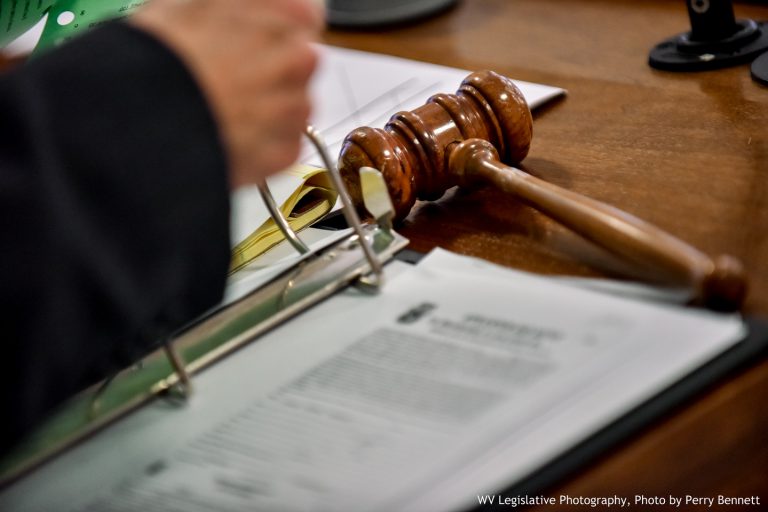As of 4 p.m., Thursday, April 11, 2013, the 58th day of the 81st Legislature’s 1st Regular Session, 1,164 bills have been introduced in the House, 665 in the Senate. Of those bills, 66 have completed legislation in both chambers and either have or await the Governor’s signature. A sampling of these completed bills includes:
Senate Bill 80 requires certain central office administrators and supervisors to substitute teach on at least three instructional days each school year. Superintendents and those who have never held a valid teaching certificate or administrative certificate are exempt from the requirement.
Senate Bill 145 will add language permitting persons complaining of alleged violations of the federal Help America Voting Act, an Act created by the federal government to ease the general process of voting.
Senate Bill 158, called the “Complete Streets Act”, will encourage the Division of Highways to use the latest and best design standards that apply to bicycle, pedestrian, transit and highway facilities. This is expected to improve facilities and ease the commuting process for citizens.
Senate Bill 183 will provide that for tax year 2012, the meaning of terms in the West Virginia statutes relating to corporate net income taxes will have the same meaning as those terms have under federal statutes as amended between January 1, 2012 and January 3, 2013. This is the annual corporate net income tax update bill that incorporates changes in federal tax law enacted between January 1, 2012, and January 3, 2013, into the state corporate net income tax statutes for purposes of determining tax liability for tax year 2012.
Senate Bill 383 will authorize family court judges in family court contempt cases to appoint counsel if the indigent litigant faces jail time. Currently, an attorney who gives representation to someone appointed by a circuit or supreme court are immune from potential liability arising from the representation of that person, with this bill, family court is now also included.
Senate Bill 412 requires conservation district supervisors to be removed from office in the same manner in which other elected county officials are. This creates conformity among the removal process among elected officials but does not include judges due to their own specific procedures.
Senate Bill 421 will amend the state code to permit the Parkersburg South High School Patriot to carry its official musket onto school property when in acting in his or her own official capacity. West Virginia law already gives this same courtesy to the West Virginia Mountaineer.
Senate Bill 430 adds a definition for the term “employment term” as it pertains to the “Teacher’s Defined Contribution Retirement System.”
Senate Bill 431 makes any participating employer, its transferee, successor or assignee liable for the payment of all employer and employee retirement contributions, delinquency fees and charges or costs related to participation in the public retirement system. It also allows the Consolidated Public Retirement Board to file a lien in the amount owed the Board, which the Board may enforce once any amount owed is more than 60 days past due. The Board may also recover costs of enforcing the lien.
Senate Bill 458 will allow the Public Employees Insurance Agency (PEIA) director to operate health benefit plans on a calendar year basis provided it is financially advantageous to the state. This gives more flexibility to the director and still allows financial plans to operate on a fiscal year basis.
Senate Bill 463 will increase the cap on fees charged for licensing gas transmission on pipelines from $315,000 to $400,000 in order to pay for at least one more pipeline inspector for the PSC. The increased fee will give more money on a volume/mile basis to pipeline owners.
Senate Bill 496 relates to finding and declaring certain claims against the state. The bill will direct payment of certain claims made by those who have provided commodities and services to state agencies who have not been paid because those claims would have put the agency over the allotted appropriation. These claims are subject to approval by the Legislature.
Senate Bill 638 will terminate the severance tax exemption for production of natural gas or oil. The bill eliminates exemption from oil and natural gas severance taxes as it applies to horizontal wells that applies to all natural gas or oil produced from any well which has not produced marketable quantities for five consecutive years.
House Bill 2108 makes the failure to wear a seat belt in West Virginia a primary offense, rather than the previous secondary offense. Penalties for the crime will remain at $25, with no court costs or points on driver’s licenses.
House Bill 2314 allows family court judges to order that a child be taken into the emergency custody of the Child Protective Services Division of the Department of Health and Human Resources in instances when the child’s physical well-being is in imminent danger and there are no other reasonable available alternatives to the custody order.
House Bill 2361 includes those who have served honorably or who were discharged because of service connected disabilities in the National Guard and Reserves in the definition of veterans eligible for preference in employment training and employment.
House Bill 2463 repeals an outdated article in the WV Code which permits guardians or care takers of a person who has been judicially ruled mentally incompetent to petition the court to have the person sterilized.
House Bill 2521 gives the prosecuting attorney of a county or a duly appointed special prosecutor additional procedures for forfeiture of contraband property involved in the trafficking of controlled substances.
House Bill 2553 permits the Secretary of State to shut down a limited liability company, a corporation, a nonprofit corporation or a foreign corporation corporate entity if a required professional license has been revoked or the entity is in default with the Bureau of Employment Programs.
House Bill 2729 allows schools to maintain epinephrine auto-injectors, also known as EpiPens, for emergency situations involving an anaphylactic reaction. Physicians will prescribe schools orders and protocols for the use of the EpiPens. School Nurses and other personnel will be required to receive training before being certified to administer the EpiPens.
House Bill 2858 corrects an incorrect internal reference in the WV Code relating to consumer relief bonds. It is purely technical in nature and simply corrects a reference to a subsection in WVC §24-2-4f.
House Bill 2923 provides an alternative way to meet the residency requirement for West Virginia-chartered banking institution’s board members. Currently, a majority of board members must be West Virginia residents. Under the bill, a board member may meet the legal requirement if he or she resides in West Virginia or within 100 miles of a physical office of the bank.
House Bill 2940 require a meeting in each Regional Education Service Area (RESA) of all superintendents and county board members in the RESA every other year to identify administrative, coordinating and other county level services and functions that may be shared between or among the county boards, especially when resignations, retirements, staffing realignments or similar events may occur.
House Bill 2992 eliminates duplicative reporting requirements on distributors of tobacco products regarding imported cigarettes.
House Bill 3003 requires tobacco product manufacturers not participating in Tobacco Master Settlement Agreement who want to do business in West Virginia to post bond.
House Bill 3028 expands the number of hours a state employee can work in a temporary position each year from ninety days to one thousand hours.








